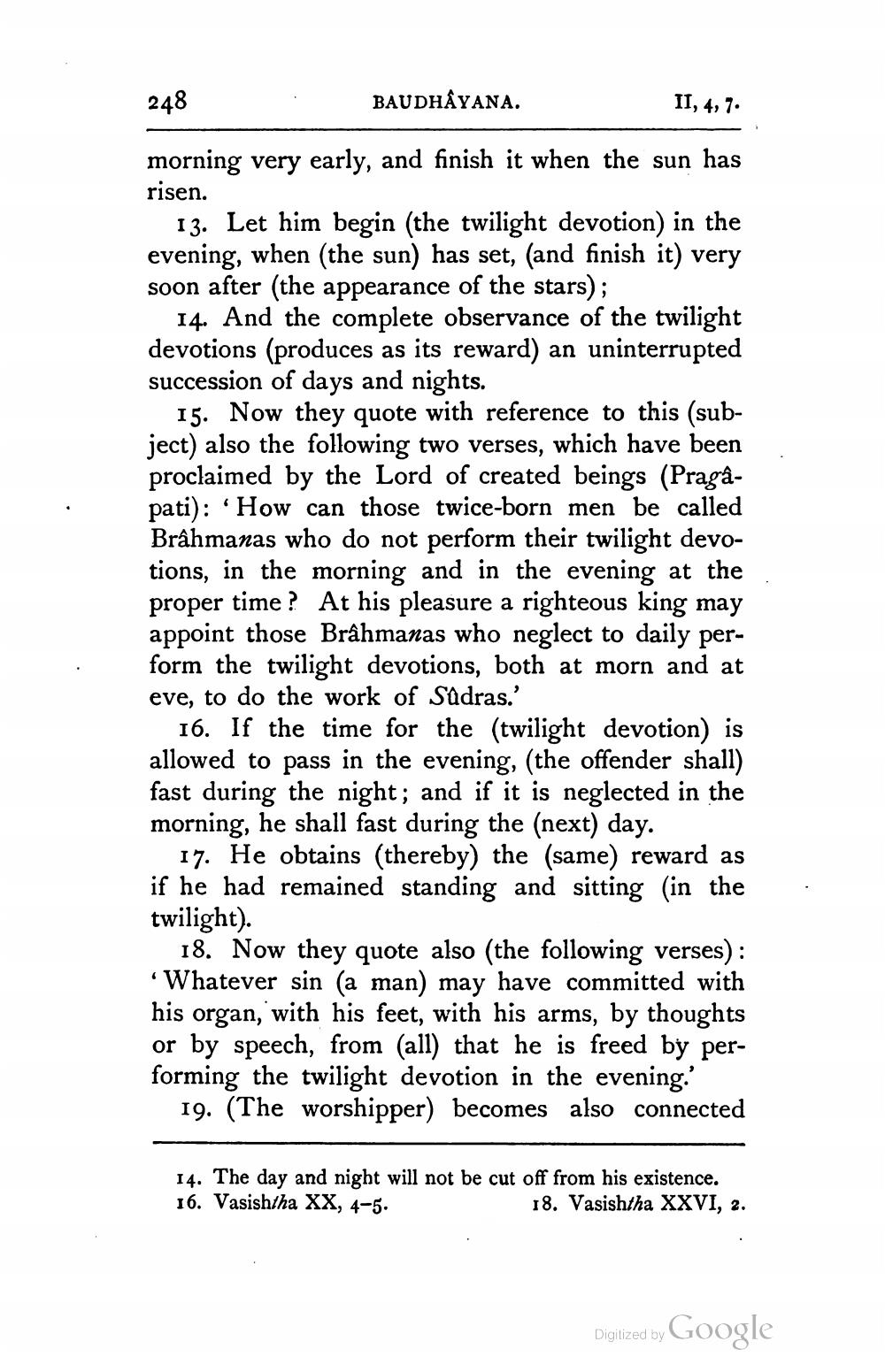________________
248
BAUDHẤYANA.
II, 4, 7.
morning very early, and finish it when the sun has risen.
13. Let him begin (the twilight devotion) in the evening, when (the sun) has set, (and finish it) very soon after (the appearance of the stars);
14. And the complete observance of the twilight devotions (produces as its reward) an uninterrupted succession of days and nights.
15. Now they quote with reference to this (subject) also the following two verses, which have been proclaimed by the Lord of created beings (Pragapati): 'How can those twice-born men be called Brâhmanas who do not perform their twilight devotions, in the morning and in the evening at the proper time? At his pleasure a righteous king may appoint those Brâhmanas who neglect to daily perform the twilight devotions, both at morn and at eve, to do the work of Sudras.'
16. If the time for the (twilight devotion) is allowed to pass in the evening, (the offender shall) fast during the night; and if it is neglected in the morning, he shall fast during the (next) day.
17. He obtains (thereby) the (same) reward as if he had remained standing and sitting in the twilight).
18. Now they quote also (the following verses): Whatever sin (a man) may have committed with his organ, with his feet, with his arms, by thoughts or by speech, from (all) that he is freed by performing the twilight devotion in the evening.'
19. (The worshipper) becomes also connected
14. The day and night will not be cut off from his existence. 16. Vasishtha XX, 4-5.
18. Vasishtha XXVI, 2.
Digitized by Google




